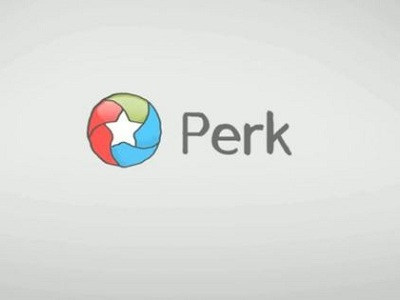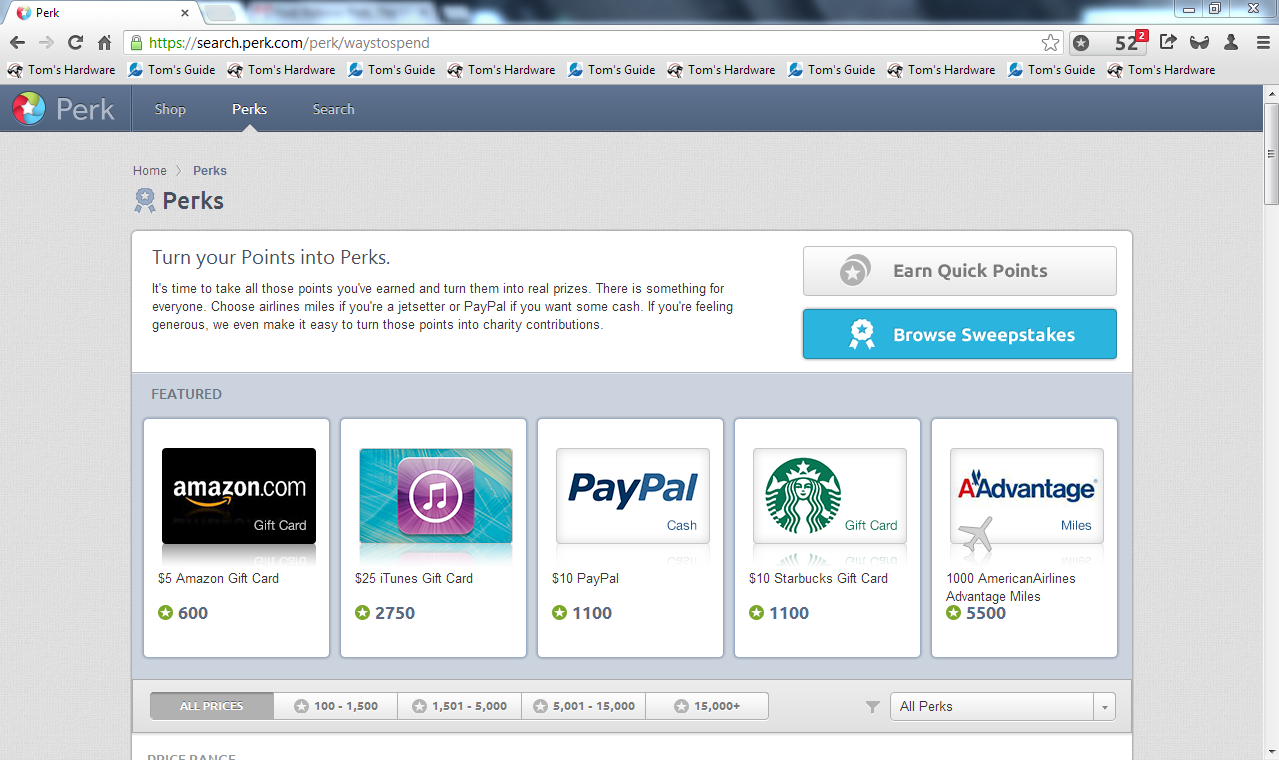Surf for Rewards! New Web Browser Gives Perks for Browsing
Chromium web browser Perk offers points rewards for browsing; exchangeable for a variety of goods and services.

Earlier this week the Texas-based company Jutera Labs launched their vision for a more rewarding Internet browsing experience. This vision is called Perk, and comes in the form of a web browser that rewards you for using it. By doing everyday routine things such as browsing, surfing, shopping, working or even procrastinating, the user can earn virtual "Perk Points," which can then be exchanged for real world goods and services.
The point system is similar to other loyalty programs such as frequent flier or credit card reward points, but instead of having to make a purchase, all you have to do is browse. The points can then be exchanged for a variety of items at over 2,000 merchants, including the Apple Store, Starbucks, 1-800 Flowers, BestBuy, Dell, Bloomingdale's, Urban Outfitters, Sports Authority and even charities and good cause associations, including Cancer Society, Autism Speaks, ASPCA and more. A full list of charities and services can be found on their website here.

The web browser is built on the open source project Chromium, and functions similarly to Google Chrome, which was built on the same project. The browser also uses Yahoo as its primary search engine that is built around the same clear and uncluttered GUI that has made Google Chrome so popular. The browser is available for both Mac and Windows users and is reasonably customizable in terms of privacy and data security.
For those skeptics out there, we can confirm that this is not a scam, with multiple users already having exchanged some points for coupons or vouchers. We tried the browser ourselves and were surprised at how well the browser copes in general, especially for a product so new to the buggy domain of the Internet. The browser itself is very similar to the Google Chrome layout (not surprising, really). We found ourselves with two Perk points after 16 searches with the Perk search engine. As $10 in cash via PayPal is around 1,100, we found that you get about $0.01 per 10 searches.
The idea of this new browser is certainly attractive, with an expected user group leaning more towards the type of people who work online all day. With this project still in its infancy, we look forward to seeing if this idea grabs hold of people the way real work loyalty programs do. What are your thoughts and opinions towards this new way of looking at the interaction between browsing and advertising on the web? Would you consider switching or are you sitting this one out for the moment?
Sign up to get the BEST of Tom's Guide direct to your inbox.
Get instant access to breaking news, the hottest reviews, great deals and helpful tips.
-
shikamaru31789 So 10 searches is equal to 1 cent. I think Bing Rewards is closer to 1 cent per 2 searches if you get Amazon Gift Cards, but only up to 30 searches a day. The question is, will the two work together? I'm not sure that they will because I think Bing Rewards requires the Bing toolbar, which is only available on Internet Explorer last I checked.Reply -
MANOFKRYPTONAK Hmm I wonder if this comes with bloatware. I am a little skeptical, could be the future of browsing who knows? Seems like a great way to grab the consumer.Reply -
arson94 Bing Rewards doesn't require Bing Toolbar and you can do it with any browser. But I use IE anyway, cause it's awesome.Reply -
DarkSable And what is stopping me from installing this and using a script to search for random series of letters constantly while I actually do work using chrome?Reply -
das_stig And if it takes off and lotsof people strat using it,how long before the company folds when they have to start paying out loadsa $$ after making loads $$ for the owners.Reply -
signothorn On one hand, I'm being spied on anyway, might as well be paid for it. On the other hand, if it's to find a better way to directly market based on my searches, I wouldn't appreciate all the midget porn ads popping up when I have company over.Reply -
ta152h Bing has much greater rewards. You get .5 cents per search. Why would anyone want to use this, where you'd need far more searches?Reply -
Bobs Your Uncle When a product or service is offered as being "Free", the consumer IS the product. Until I learn otherwise, I'm going to assume that is doubly the case with Perk. (And I don't think Google "gives away" services, etc. out of altruism.)Reply
